The most recent videos appear at the top of this list.

ePresessional: a blended approach to delivering pre-sessional courses in EAP for international students
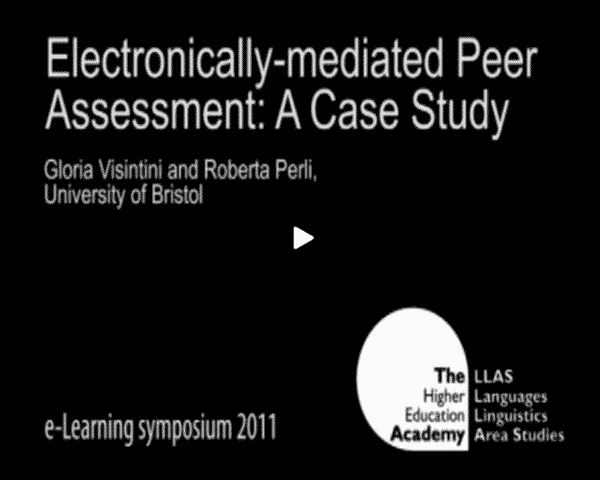
Electronically-mediated Peer Assessment: A Case Study
This presentation introduces a study into the use of Peer Assessment to evaluate speaking skills. The study was developed through collaboration between the School of Modern Languages and the Education Support Unit at the University of Bristol. It aims to encourage student assessment of other students’ oral work and is part of a wider strategy that supports independent learning and a more active student engagement with feedback. In the first part of the presentation we will explain the rationale behind the case study. In the second part we will show how the study was carried out in practice and supported by a variety of technological tools. In particular, we will describe how:
- the language lab Sanako allowed us to create, record and store the oral materials;
- the sound editor and recording software Audacity was used to edit the students’ audio materials;
- the ‘self and peer assessment’ function of Blackboard provided the platform to set up the submissions, evaluations and provision of feedback.
The strengths and the limitations of the case study will also be discussed.
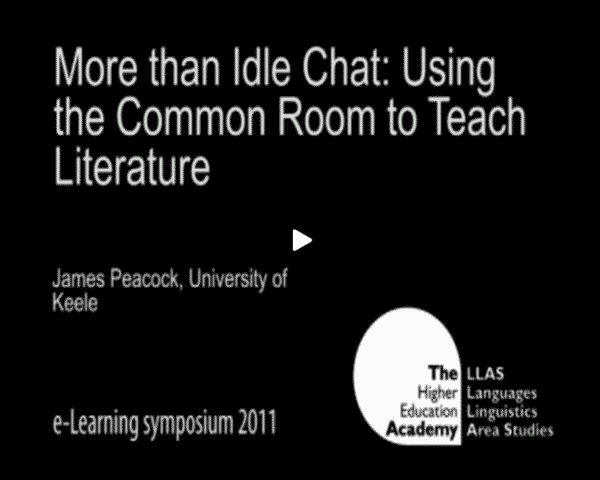
More than Idle Chat: Using the Common Room to Teach Literature
Last year I was laid low with a virus for several days and it looked likely that I would have to cancel several seminars. At the last moment I remembered that there was a Chat facility on the Keele Learning Environment (KLE) and emailed the students from each seminar, asking them to enter the Common Room at the usual seminar time for a “virtual seminar” I could conduct without spreading my germs and without leaving the comfort of my bed. Over a period of two days, I led largely successful seminars on “The Murders in the Rue Morgue” by Edgar Allan Poe and on New York’s exceptionalism.
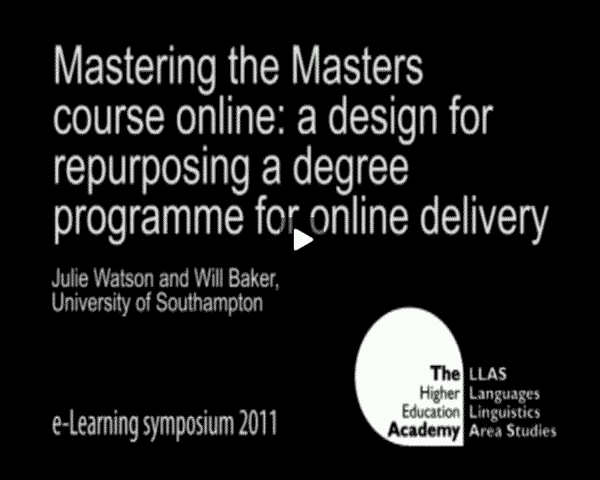
Mastering the Masters course online: a design for repurposing a degree programme for online delivery
Should distance Masters programmes still be relying on a design formula which simply delivers paper-based learning content over the internet? A more innovative approach to online course-building has been developed in Modern Languages at the University of Southampton, which repurposes face-to-face course content into interactive, activity-based ‘learning objects’ to form an online Masters programme in ELT (English Language Teaching).
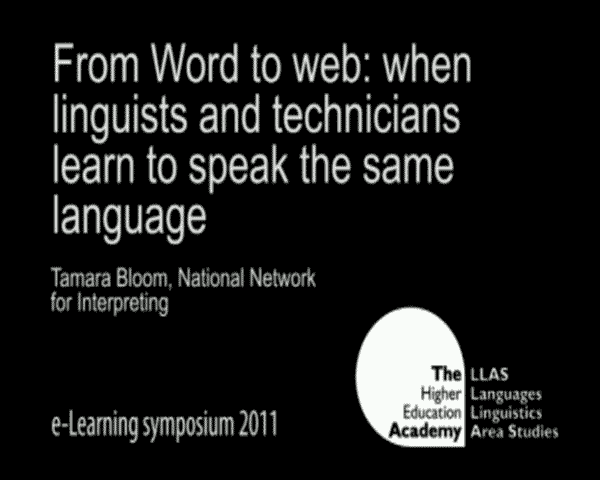
From word to web: when linguists and technicians learn to speak the same language
Today’s technological age presents us with almost unthinkable capabilities in communication; like a child let loose in a sweet shop, we are faced with almost endless possibilities. Examples include video-calling friends on our hand-held devices, or following distant news developments real-time via faster-than-press tweets. The opportunities for harnessing the ‘latest thing’ in our learning and teaching are just as numerous, and huge strides have already been made in bringing the book up to speed with the netbook.
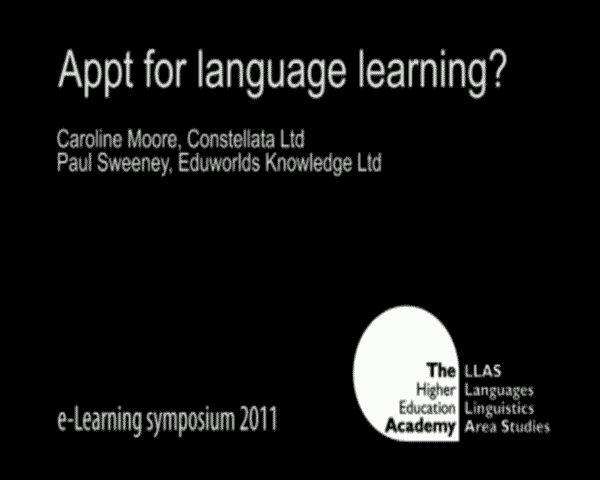
Appt for language learning?
We are still exploring (uncovering?) how to take advantage of mlearning: communication tools; field research devices; portable learning content repositories and more. The huge growth in iPhone and Android 'Apps' is consumer driven but of increasing interest to teachers. Mlearning makes it possible for learners to spend more time on self-study and thus realize their learning goals.
Language Awareness Activities : Jamaican Holiday (Intermediate Plus)
Most users of a spoken language understand a sentence by processing the order that the words happen in. In the sentence ‘Jamil was laughing’ we know that it was Jamil who laughed, because the name ‘Jamil’ came before the word ‘laughed’. However, in signed languages, learners have to open their minds to a grammar that relies on a 3D space, not a chronological order. They have to alter their thinking from, “What sign comes next?” to “What sign moves where?” Download the worksheet below
Language Awareness Activities : Childhood memories (confident beginner)
Many people love to watch British Sign Language because they see it as expressive and engaging. What they don’t always understand is that the facial expressions and movements that they see are adding subtle levels of meaning to the verbs and nouns, and are an integral part of the grammar.
Download the worksheet below
Language Awareness Activities : Giving up Smoking (Intermediate)
We know that not everyone signs in the same way, and that for some students, encounters with idiosyncratic ways of signing can be a challenge. However, as a learner, it is important to view the rich variety of styles and dialects as an exciting part of the learning process.
Download the worksheets below
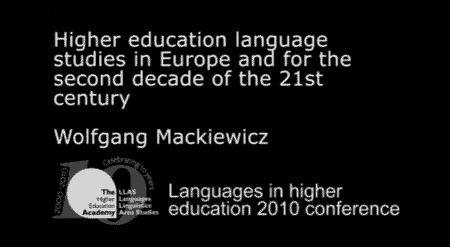
Keynote: Wolfgang Mackiewicz - Higher education language studies in Europe and for the second decade of the 21st century
Director of the Language Centre and Honorary Professor of English Philology at the Freie Universität Berlin and president of the European Language Council
